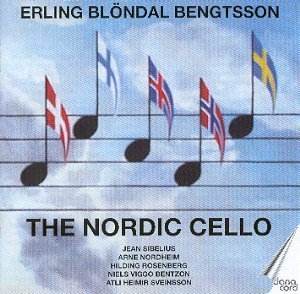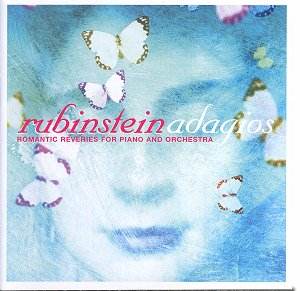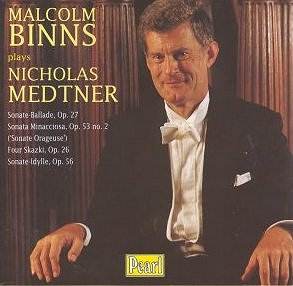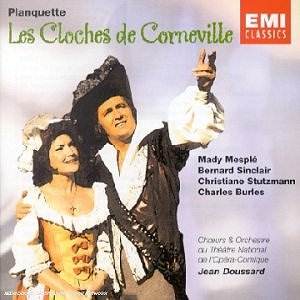 Composer: Hilding Rosenberg (1892-1985), Jean Sibelius (1865-1957), Arne Nordheim (b. 1931), Atli Heimir Sveinsson (b. 1938), Niels Viggo Bentzon (1919-2000)
Composer: Hilding Rosenberg (1892-1985), Jean Sibelius (1865-1957), Arne Nordheim (b. 1931), Atli Heimir Sveinsson (b. 1938), Niels Viggo Bentzon (1919-2000)
Works: Intermezzo (1974), Theme and Variations (c. 1887), Clamavi (1980), Dal regno del silenzio (1989), Variations on The Volga Boatmen Op.354 (1974)
Performers: Erling Blöndahl Bengtsson (cello)
Recording: 23, 26 March 2001, Sorgenfri Church, Denmark
Label: Danacord DACOCD 554 [57.01]
The latest release featuring Erling Blöndahl Bengtsson presents an attractive exploration of Nordic cello repertoire, showcasing both well-known and lesser-known composers. This album, aptly titled The Nordic Cello, offers an engaging perspective on works that span the late Romantic to contemporary periods, drawing connections through the expressive capabilities of the cello. The selected pieces illustrate a rich tapestry of sound, reflecting the cultural and emotional landscapes of their respective composers.
Bengtsson’s interpretation of Hilding Rosenberg’s Intermezzo captures the essence of the music with a careful balance between lyrical flow and emotional restraint. This work, originally conceived as a movement of a withdrawn cello concerto, resonates with the pastoral quality reminiscent of Vaughan Williams’ Lark Ascending, yet it is tempered by a sober introspection akin to Arnold Cooke’s idiom. Bengtsson’s technique shines through in this piece, as he navigates the melodic contours with a sensitivity that evokes the bittersweet melancholy inherent in Rosenberg’s style.
Jean Sibelius’ Theme and Variations emerges as a significant highlight, showcasing the young composer’s affinity for the cello as a lyrical instrument. This early work, deeply rooted in the Baroque tradition, allows Bengtsson to display his command of phrasing and tonal color. Each variation unfolds with a clarity that highlights the thematic material while simultaneously allowing for personal interpretation. The cellist’s nuanced approach brings out the playful yet introspective character of the variations, revitalizing this often-overlooked gem of Sibelius’ oeuvre.
The modern works by Arne Nordheim and Atli Heimir Sveinsson offer a compelling contrast to the earlier pieces. Nordheim’s Clamavi and Sveinsson’s Dal regno del silenzio delve into contemporary expressionism while remaining accessible to listeners. Both compositions, substantial in their respective lengths, are marked by a rich exploration of sonority and texture. Bengtsson’s performance here is particularly noteworthy; he embraces the dark, introspective nature of the music without resorting to avant-garde theatrics. The recording captures his dynamic range beautifully, allowing the listener to appreciate the undamped humming resonance that characterizes Nordheim’s work, especially in the striking opening moments.
Niels Viggo Bentzon’s Variations on The Volga Boatmen serves as a vivacious conclusion to the disc. Here, Bengtsson’s lively interpretation is infectious, demonstrating his deep understanding of the folk idiom. The variations are inventive, and the way Bengtsson traverses the thematic material with energy and flair is a testament to his technical prowess. While the piece may lack the gravitas of the preceding works, it serves to invigorate the overall narrative of the album. The recording quality is particularly commendable, with a startling clarity that captures the cello’s resonant voice and the subtleties of Bengtsson’s breathy engagement, enhancing the listener’s experience.
This recording stands out not only for its selection of repertoire but also for the exceptional artistry of Erling Blöndahl Bengtsson. His interpretations breathe new life into these works, revealing the emotional depth and technical intricacies that each composer has to offer. The sound engineering achieves a fine balance, ensuring that every nuance of Bengtsson’s performance is both vivid and immersive. The exploration of the Nordic cello repertoire is enriched by this thoughtful and expertly executed album, marking it as a significant contribution to the recordings of contemporary cello music.



